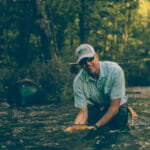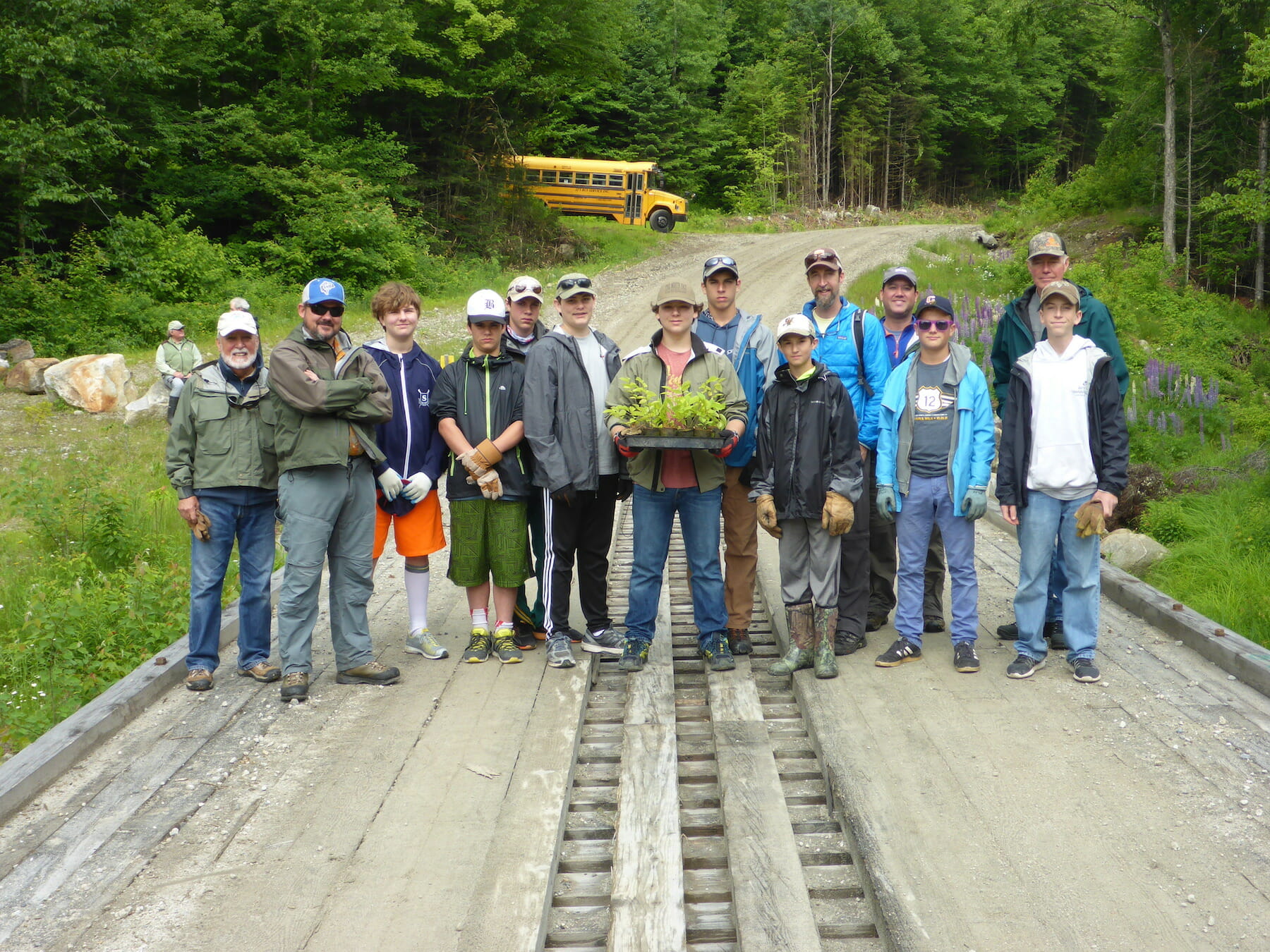By Joe Norton
Recently, TU’s Upper Connecticut Home Rivers Initiative held our annual conservation days with the New Hampshire and Vermont TU Youth Trout Camps.
Eliza Perreault led the camps’ Conservation Days. She is the Home Rivers Conservation Assistant, Education and Outreach Coordinator, Riparian Invasives Specialist, Grip-Hoist Gal, and, as is clear, the program’s Jill of All Trades.
For the Conservation Days, Trout Campers went to the adjacent East Branch of the Nulhegan, where TU has been working with the Vermont Fish and Wildlife Department on a multi-year restoration and brook trout research project.
The conserved lands, owned by Weyerhaeuser (formerly Plum Creek), represent the largest privately held tract of land in Vermont, with guaranteed access for hunting and fishing. The folks at Weyerhaeuser have been fantastic partners to TU and VTFW.
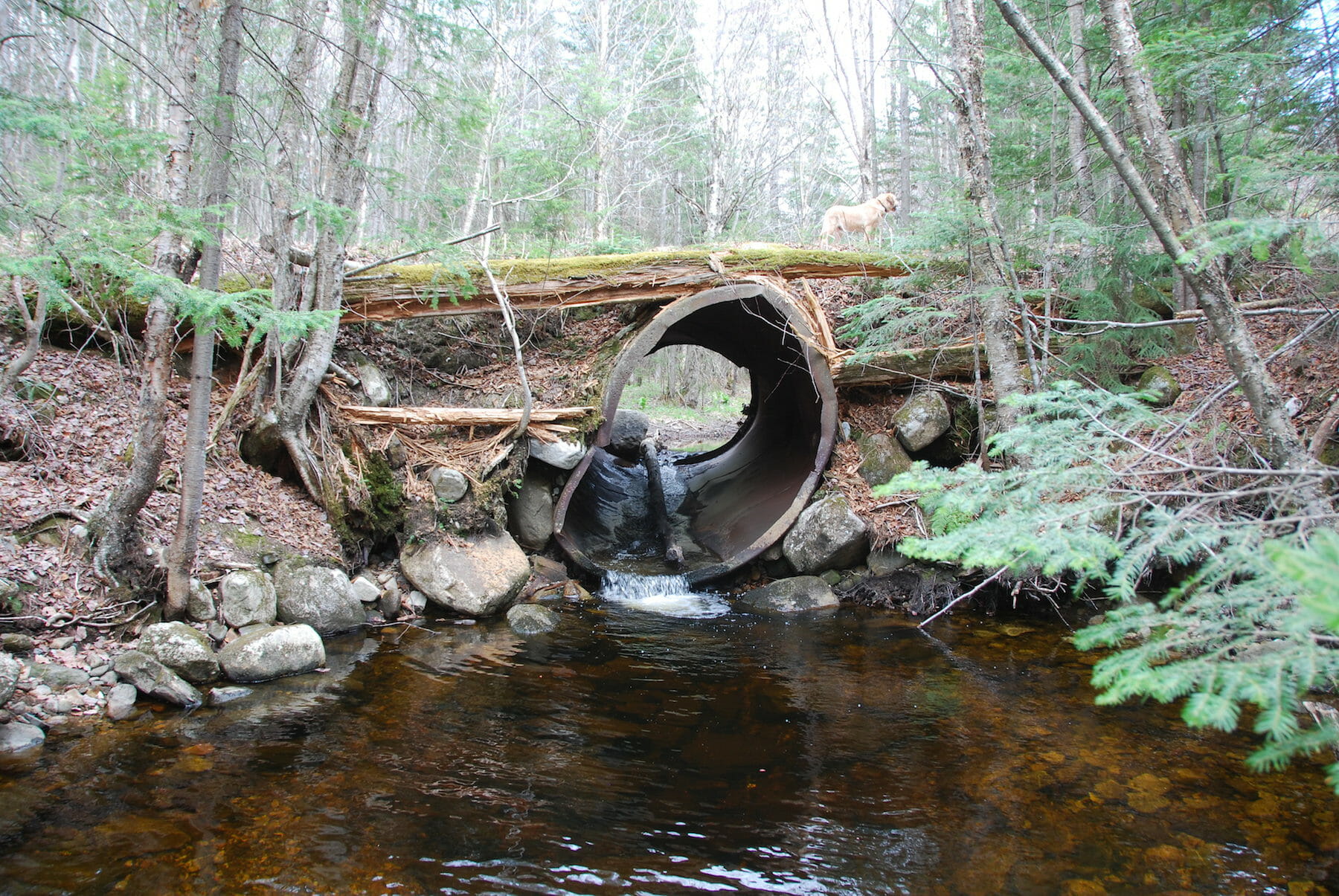
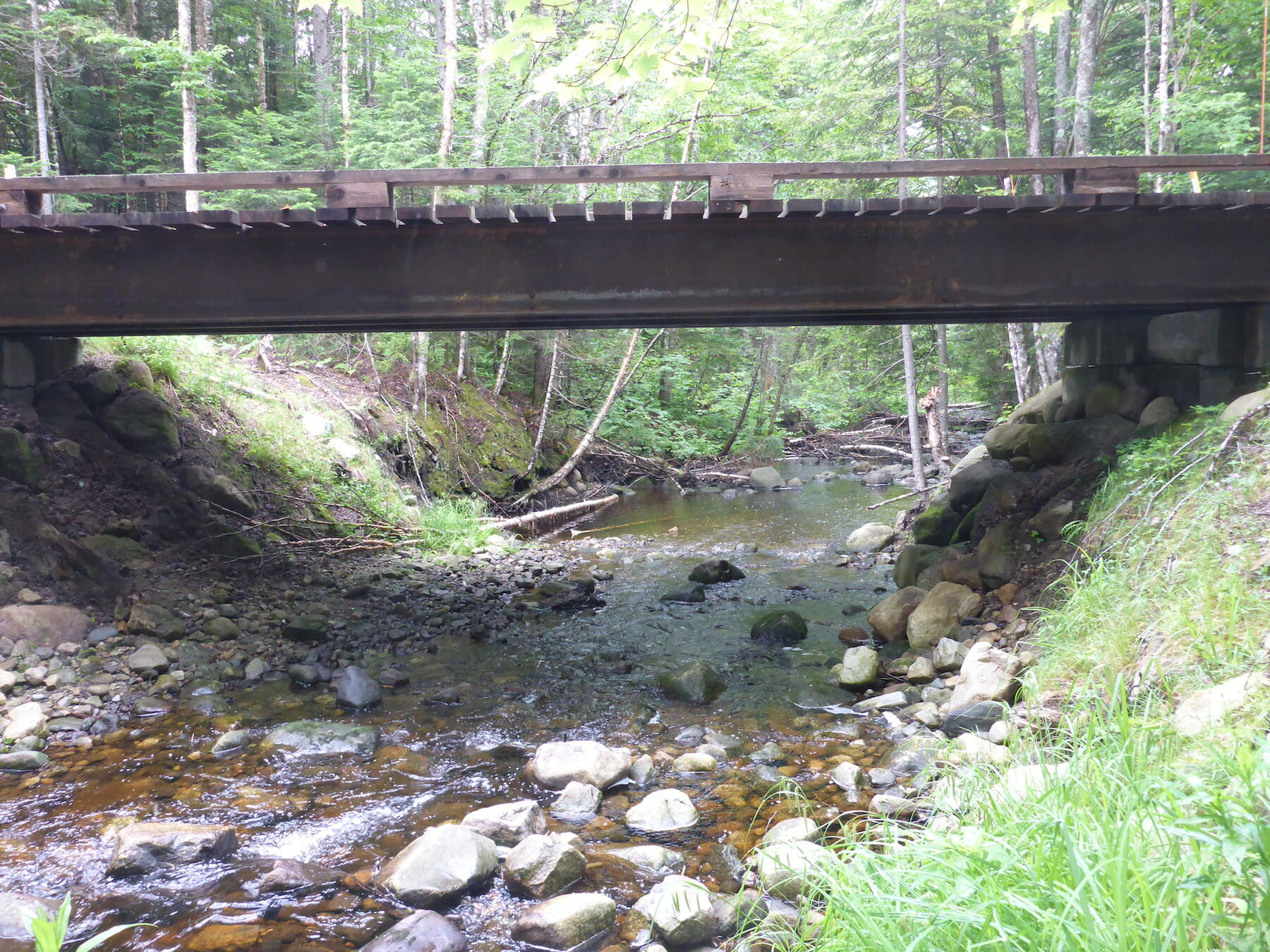
During the trip, campers visited a culvert-to-bridge project on upper Sable Road (before and after pictures of the site above) and learned about the problems that fragmentation and loss of connectivity from poor stream crossings cause to native brook trout populations.
We then walked downstream a couple hundred feet to some woody habitat additions (similar to those visible on the left side past the bridge of the “after” photo above) and had an interactive discussion on the benefits that instream wood provides: the retention of organic material that insects (trout food) feed upon, increased spawning habitat, cover, pool carving and flood resiliency, to name a few benefits.
After that we drove downstream for a service project at another recent culvert-to-bridge replacement where the campers transplanted native trees and shrubs from the adjacent forest and planted disease-resistant American elm trees (below).
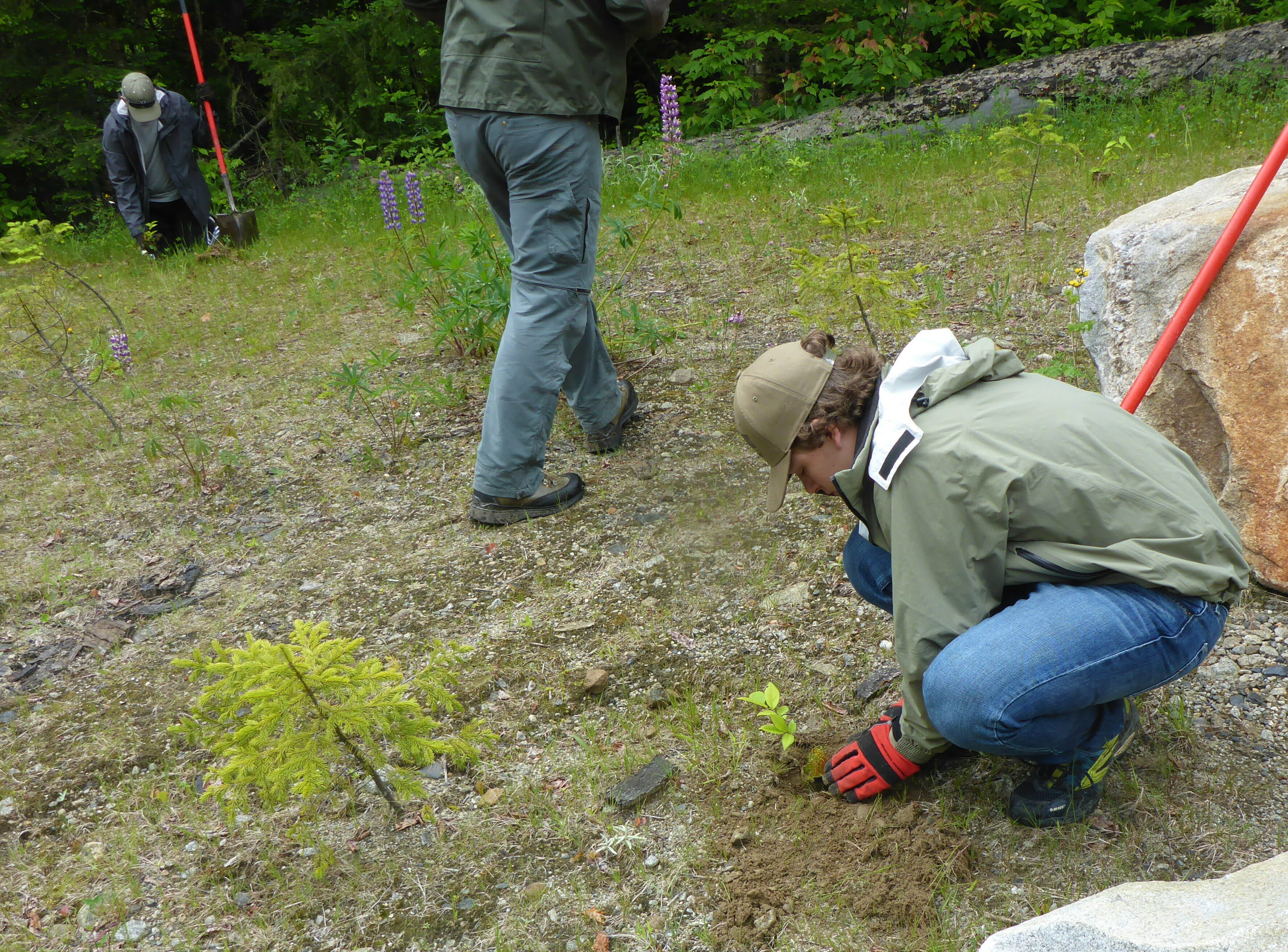
Elm trees are native to the area and ours are purchased from our friends at the Liberty Tree Society/Elm Research Institute in Keene, N.H. Elm trees are a perfect riparian restoration planting. Their roots grow strong and provide great bank stabilization, they grow quickly, and these disease resistant trees stand a great chance of maturing and providing stream shade and cover for decades and decades. TU chapters can purchase elm starts for a nominal fee of only $2 per tree.
The tour gave the campers a deeper look at stream conservation work, and helped them understand that sometimes conservation requires hard work.
Joe Norton is the project manager for Trout Unlimited’s Upper Connecticut Home Rivers Initiative.


